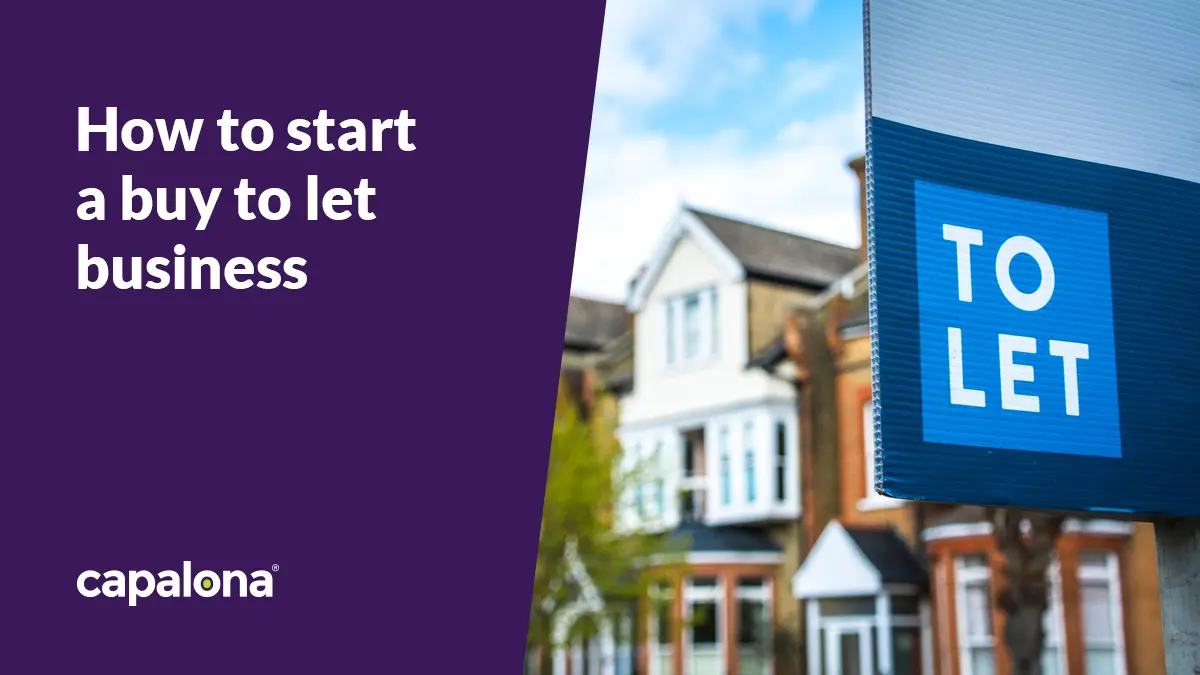Whether you’re a landlord or a developer, or you’re considering becoming one, you might have questions about how to start a buy-to-let property business. Should you set up a limited company or continue as a sole trader? Are there tax benefits to owning a company? And what funding options are available to you when buying a property?
This article explores how to start your buy-to-let business, the pros and cons, how to finance your property purchases and more.
What is a buy-to-let property company?
A buy-to-let property company is set up by a landlord or developer to purchase properties and let them out to tenants. Landlords are not legally required to create a limited company, they can be a sole trader or partnership, too.
Whether you decide to become a limited company (also known as an incorporated company) is your choice. But becoming a limited company can come with benefits, including tax relief and no personal liability.
40% of rental properties are now purchased and owned by the UK’s 300,000+ buy-to-let property companies. So if you do decide to become incorporated, it seems you’re in good company.
Advantages of starting a limited buy-to-let property company
- You’re not personally liable - Arguably, one of the biggest benefits of starting a limited buy-to-let company is having limited liability. As an incorporated business, it’s its own separate legal entity — releasing you from any personal responsibility when it comes to financial losses.
- Significant tax savings - Another major benefit of deciding to incorporate your property business is it makes it more tax efficient. If you’re a high-rate taxpayer, instead of paying 45% of income tax, you’ll only pay up to 25% of corporation tax.
- You can make a steady income - Providing you can find and keep good tenants, you can enjoy a steady income stream. By investing in many properties, you can diversify and build your property portfolio, which helps balance risk if other properties don’t generate a good rental yield.

Disadvantages of starting a limited buy-to-let property company
- Limited company costs might not be worth it - If you’re a basic rate taxpayer (only pay 20% income tax after your personal allowance) and you only own perhaps one or two properties, chances are the costs associated with a limited company aren’t worth it. If you’re not looking to expand your portfolio, you’re best remaining unincorporated.
- You have more responsibilities - As a limited company director, there are fiduciary responsibilities you’re legally required to carry out. I.e. keeping accurate financial records and ensuring the business complies with certain tax obligations.
- You might get taxed twice - If you plan to take a salary and dividends from the limited company, you risk getting taxed twice. Incorporated companies pay corporation tax on their profits, and you pay income tax on the salary you take.
- More expensive mortgages - Buy-to-let mortgages cost limited companies more money in interest rates and fees. Why? Because they’re deemed riskier than personal buy-to-let applicants. Some lenders will require personal guarantees from all directors at your company and may even require you to have a certain level of experience in the property market.
- It’s not cheap to run - Any property business comes with a certain level of financial investment, but with a property company, you can spend a lot of money. First, purchasing the property, renovating it, and even when you’re finished, you’re not guaranteed steady rental income.
Do I have to pay Capital Gains Tax?
Yes, if you’re a sole trader or a partnership rather than a limited property company, you will have to pay Capital Gains Tax (CGT). The current CGT rate is 18% if you’re a basic rate taxpayer and 28% if you’re a higher rate taxpayer. You only pay this on any profit when it exceeds your personal allowance of £6,000 and £3,000 for trusts.
If it’s your main residence, you don’t pay a penny, but if you’re a landlord making money from an additional property, you’re subject to pay CGT.
Do I have to pay Corporation Tax?
If you set your property company up as a limited company (also known as incorporated), you’ll be subject to Corporation Tax. The Corporation Tax rate changed in 2023, and you can now expect to pay 25% if profits are more than £250,000 or 19% if your profits are under £50,000.
Corporate Tax Rates for 2023/24 tax year:
| Company profits | Corporate Tax Rate 2023/24 |
|---|---|
| Small profits (less than £50,000) | 19% |
| Large profits (more than £250,000) | 25% |
| Special rate for unit trusts and open-ended, investment companies | 20% |
Source: Gov.uk
Do I have to pay both Corporation Tax and Capital Gains Tax?
No, you either pay Corporation Tax (if you’re a limited company) or Capital Gains Tax if you’re a sole trader or partnership (i.e. not a limited company or corporation). Which one you pay depends on the legal status of your business.
It’s worth talking through the finer details of each with your accountant to see whether you’d make tax savings by becoming a limited property company rather than trading as a sole proprietorship or partnership.
How can I finance my buy-to-let property purchase?
You have a few options when financing your buy-to-let purchase, such as using personal funds or applying for commercial property finance, including secured and unsecured business loans, commercial mortgages, bridging loans, and property development finance.
Business loans
You have two types of business loans to choose from: unsecured or secured. You can apply for unsecured loans up to the value of £500,000 with our trusted UK lenders. These loans are quick to apply for as there’s less paperwork, unlike a secured loan. Funds can be in your account within days of approval.
Secured loans take a little longer to secure, but if you’re looking for heavy financial investment, you can apply for loans up to £2 million+, but you do have to secure the loan with a high-value asset — which means you risk losing it if you fail to make timely repayments. You can secure this loan with commercial property, vehicles, land, or equipment.
Commercial mortgage
Providing the property you’re purchasing isn’t residential, you can apply for a commercial mortgage. Most lenders will want you to be a limited company to be able to apply for this type of funding, so if you’re not a limited property company, you might have to consider other funding options.
Lenders will want to understand more about your trading history to ensure you can make repayments before agreeing to lend to you.
Commercial bridging loans
Another type of property development finance, anyone can apply for bridging finance — individuals, limited companies, or sole traders. Commercial bridging finance, is a short-term funding solution, as it ‘bridges’ the financial gap until you can get longer-term financing, i.e. commercial mortgage.
Bridging loans can be expensive as you pay monthly interest rates rather than an annual percentage rate (APR). The longer you have the loan, the more expensive it gets. Most bridging loans are in place for a maximum of 12 months.
How to start a buy-to-let property company
Before you do anything, you should decide whether you’re going to be a sole trader or set up as a limited company. If you choose to set up as a limited company, you must choose a name that isn’t the same as another registered company’s name.
You can use the Companies House company name availability checker to see if yours is available.
Next, set up a business bank account. If you’re a sole trader, you are not legally required to set up a business bank account, but it can make doing your taxes and tracking personal and business transactions easier.
If you’re a limited company, you must have a business bank account.
If you’re operating as a sole trader or partnership, you’ll pay income tax based on your earnings. You have a personal allowance of £12,570 (you don’t pay any tax on this). And then anything after your personal allowance you’ll pay:
| Tax rate | Profits |
|---|---|
| Basic tax rate 20% | £12,571 - £50,270 |
| Higher tax rate 40% | £50,001 - £150,000 |
| Additional tax rate 45% | Over £150,000 |
Remember, if you’re a limited company, you will pay Corporation Tax instead of Income Tax.
Business loans for buy to let companies
We’re brokers, which means it’s 100% free for you to use our business finance comparison tool. It’s self-serve so that you can find and compare at your own pace — and there’s no obligation to accept any quote from our lenders.
Finding the best finance for your business needs has never been easier. All you need to get started is to fill in our short quote form and share how much you’re looking to borrow, for how long you want to borrow and the reason for the finance.
You’ll be presented with a comparison table with all loan options. Expand each section to read more, or click through to make an application with the lender. Find and compare buy-to-let property finance.






